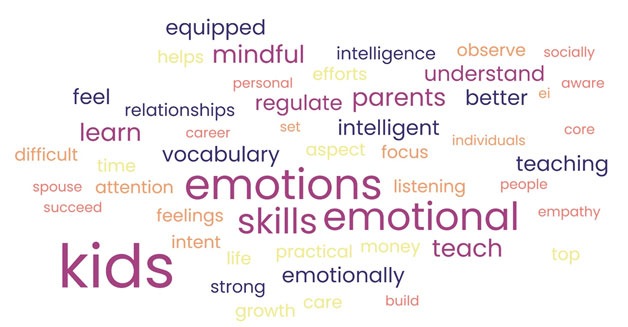
“Baba, can we please play shopkeeper game”?
My 4 years old asked in excitement as he ran and hugged me as soon I entered the house.
“Oh God, it was a very hectic day” was my first thought. Nevertheless, on positive side, at least he was not asking for playing more physically exhausting game.
“Sure, just set your shop and I will be with you in ten minutes”, I replied.
He was learning addition and this has become his favorite game recently.
He would bring his toys and set them up neatly on table and that would be the shop. He would choose to become shopkeeper or customer and roles would be reversed in next turn.
To turn it into learning opportunity I set a rule that customer have to buy two items in one go. That way he would learn and practice addition by adding price of those two items.
We started with prices that he could count with his two hands (5 or less for each item) and gradually increased as he progressed.
Later for subtraction, we added a rule that customer can return one toy to the shop.
For language skills development, I love to play “I spy” game with my son especially when we are on road traveling.
You see something passing by and say “I spy something that starts with T” and they have to guess it. Then it is their turn to ask and your turn to guess.
Pre-school kids love the “rhyming word game” which you can use to increase vocabulary, awareness of their body (like which body part rhymes with the word rose).
If you want to spark their interest in any specific topic or if they already have specific interest, play “guess my word” game (a planet that starts with M or a land transportation that starts with T).
These seemingly “silly” but fun games not just help kids learn while having fun but also builds strong bond with parents.
Their listening skills and ability to focus improves, as they have to listen attentively.
Their memory and cognitive abilities also improve when they play it every day even for short time.
Solving Jigsaw puzzles is another great exciting learning activity that you can do with your kids.
My son loves to solve jigsaw puzzles and after solving for few times, we set timer to improve how quickly he solve puzzles which he has already solved for few times.
This activity enhances problem-solving skills, they learn to use logic, recognize patterns, and think critically.
It also improves motor skills and hand-eye coordination.
In addition, it strengthens their spatial awareness, positioning of objects and concept of how different shapes fit together.
This will help them with reading maps, geometry and understanding visual perspectives down their journey.
Playing with blocks in earlier stage and later playing with Lego (5/ 6 + years old) is another great activity to do with your child.
If your child love playing with Lego, they can spend hours building, breaking, and rebuilding different things using their imagination.
Note: Just keep in mind that playing with Lego activity needs at least one of parent to sit and spend time with your child as it won’t be as easy as many other activities and children who play on their own in beginning gets frustrated and exhausted and this stops becoming a fun activity anymore.
This activity of playing with blocks or Lego plays very crucial role in fostering creativity and imagination.
Sometimes, they would like to build things by following instructions and looking at pictures and other times they will let their creativity run wild by building anything they are imagining.
This enhances children’s problem solving skills along with their understanding of breaking down a complex problem into smaller tasks help them manage complex tasks in a better way.
Both above mentioned activities (jigsaw puzzles and Lego) helps improve emotional intelligence in children.
As these activities can be very challenging, they teach children patience, resilience and persistence as they work through difficulties.
While working with puzzles and building things from blocks or Lego, children experience range of emotions from curiosity to frustration when stuck, to excitement when solved a part of puzzle, or pride when they succeed.
They learn to manage these feelings and adapt to challenges, and feel satisfaction on completion of difficult task.
Emotional Intelligence is one of the key factors of success developing these skills at early age is a huge advantage.
In addition, they also become more mindful and these activities help improve their focus.
Physical activities can be very helpful in teaching kids assertiveness in life.
Whether it is waiting for turn in line of swing, or sharing rides with others on their turn, all these seemingly small things are great opportunities to teach them social skills.
Playing team sports like football, basketball help them learn very important life skills; how to get up when you are down, how to accept defeat and put more efforts next time.
Just keep one thing in mind that we have to constantly tell them and keep reminding them of what lessons they are learning.
Book reading is without any doubt another great activity to do with your kids.
There are numerous benefits of this and I will not mention most of those, but this helps your child explore new worlds, introduce characters, walk around different scenarios, and wander in various places.
It sparks love for discovery and encourages curiosity, which becomes foundation of lifelong learning.
Reading together builds a cozy nurturing environment and develops positive association with learning.
One caution: Telling your kids to read book does not work most of the times. Either, sit and read with them especially in the beginning or read yourself and they will imitate you and seek your help without you telling them – works every time.
KIDS HATE BEDTIME.
Like seriously most of the toddlers and even up-to school goings age, they will make bedtime disastrous for tired parents.
I mean, where they get all the energy from at that time.
I remember our son used to give us quite tough time before sleeping.
Mostly, it either used to end up with my wife and me begging him to sleep or him crying because one of us lost our patience at one point during negotiations.
Nonetheless, it was tense and chaotic.
With bedtime stories, things changed dramatically.
Now he literally looks up to this time and few of the days it happened that, we started a story and he carried on building his own story.
Just remember to spare some time for this – as with time, the number of questions they ask while listening to story keeps on increasing. But hey, that is their curiosity talking and we are in it for them anyway.
Bedtime stories are pivotal in building parent-child bond, as they feel connected.
It improves their attention span and enhances their listening skills. It also adds on to their language skills and vocabulary.
Bedtime stories stimulate imagination and creativity.
Another important skill it adds on to is memory and sequencing skills.
Kids remember the stories and they build on characters, scenarios and events, which helps them with understanding sequencing.
Most importantly, it makes the bedtime routine calm, predictable and relaxing before the child transition into sleep, which is great for child’s mental health.
Cooking is another great activity that you can do with your kids (do consider age suitability).
Cooking itself is a life survival skill that your child will learn.
Other than that, they will enhance their math skills in a fun way – counting items, measuring portions, understanding fractions at much earlier age etc.
Stirring, pouring ingredients fine-tune their motor skills and hand-eye coordination.
They get introduced to some science concepts like temperature, baking, change of matter etc.
It promotes responsibility, time management, and responsibility along with giving cultural awareness.
It also encourages hygiene practices and builds healthy eating habits.
Warning: Cooking with kids is quite messy, like a lot messy but fun at the same time. Also needs to be highly supervised activity and age appropriate due to risks involved.
Now, I am sure some of you are thinking that kids usually do these activities (at least some of them) on their own or with parents. So, why write a whole blog post about it?
Coming to the most important point of this post – Be mindful.
Be mindful while you are doing these activities with them.
They will never be able to reap full benefits unless you are involved with them.
It is you, who will build their interest in these activities.
It is you, who will teach them the lessons they can learn from fears, frustrations, and failures while doing these activities.
You will be the one using these phrases repeatedly (“have some patience, everything is difficult in beginning” or “think harder, I am sure you can answer” or “it’s the efforts that count” or “we will try it again” or “everyone fears when they are trying something new”).
You will be showing them that way to success passes through many failures that you have to keep trying and not quit.
Imagine if every moment, from the morning rush to bedtime routines, could spark curiosity and build lifelong learning habits in your child.
Fostering a love of learning is not just about books or flashcards; it is about transforming everyday moments into exciting, hands-on lessons that inspire kids to explore the world around them.
By nurturing this sense of wonder, we empower children to embrace challenges and see learning as a joyful, continuous journey.
With a foundation of curiosity and enthusiasm, they can grow into confident, independent thinkers who are eager to discover and create.
P.S: I am sure there must be many more activities, and you can share in comments especially if you have any unique fun activity that you do with your kids to foster their love for learning.




